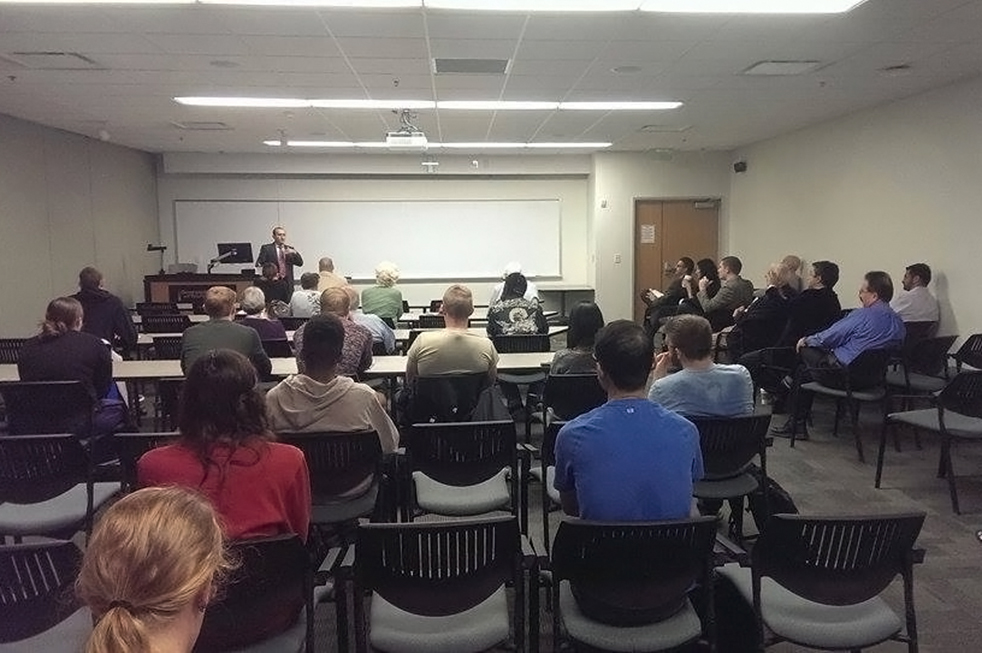Holding a PhD from Florida International University, Dr. Isa Afacan recently spoke to Tech students and faculty about ISIS, the Middle Eastern terror group, and state collapse in the Middle East.
With the series’ witty title “Let’s Talk Turkey,” Dr. Isa Afacan, a professor of International Relations at Turgut Ozal University, recounted his experience in Gaziantep, Turkey, during the Syrian Civil War.
Afacan begins his talk by recalling the recent Arab Spring revolutions that he refers to as revolutionary processes.
These processes, moreover, start as mass protests resulting in state collapse.
Citing state collapse as a major theme for Middle Eastern nations, Afacan touches upon the drastic, rapid increase in state collapse in recent years. He refers to the Arab Spring revolutions specifically as evidence of state collapse’s newfound speed.
He feels that during the revolutionary processes, the nation itself “has no other credible alternative than to turn to a Hobbesian state of nature.”
With state collapse, moreover, “trans-state groups fill the vacuum so ISIS-like organizations cause issues for Turkey and other nations around the world.”
By inquiring as to why ISIS-like organizations continue to emerge, Afacan uses the state collapse context to argue his main points. His central argument refers to the fact that state collapse kills citizenship.
With no functioning government to offer security, individuals seek protection from different identity groups.
In the Middle East, these individuals seek “immediate identity [which] can be ethnic, tribal or sectarian identity.”
Along with the elimination of the citizenship idea, Afacan feels “state collapse kills socialization cycles [while] collapsing borders.”
Citing Turkey as a prime example, Afacan believes borders no longer provide a natural distinction between states or non-state actors.
Deeming ISIS’s ideology as the main factor to the group’s success, Afacan lists “global networking capacity” and “pragmatism of the organization” as the some of the main dynamics contributing to ISIS’s effectiveness. He believes by understanding the dynamics, ISIS can be stopped.
Reciting alarming statistics, Afacan gives strong empirical evidence to support his claims. For instance, ISIS receives around 1 million dollars per day mainly from donations and ransom monies.
Afacan also mentions the propaganda techniques used by ISIS to spread the group’s message.
With many people around the globe barring witness to the demoralizing videos generally showing hostages in distressing conditions, Afacan believes the videos “show the sheer force of violence” that the terror organization is willing to commit.
When asked what he would do if he was the President, Afacan replied, “I am only a scholar.” He did share that there is no clear strategy to combatting state collapse as ambiguity can arise.
